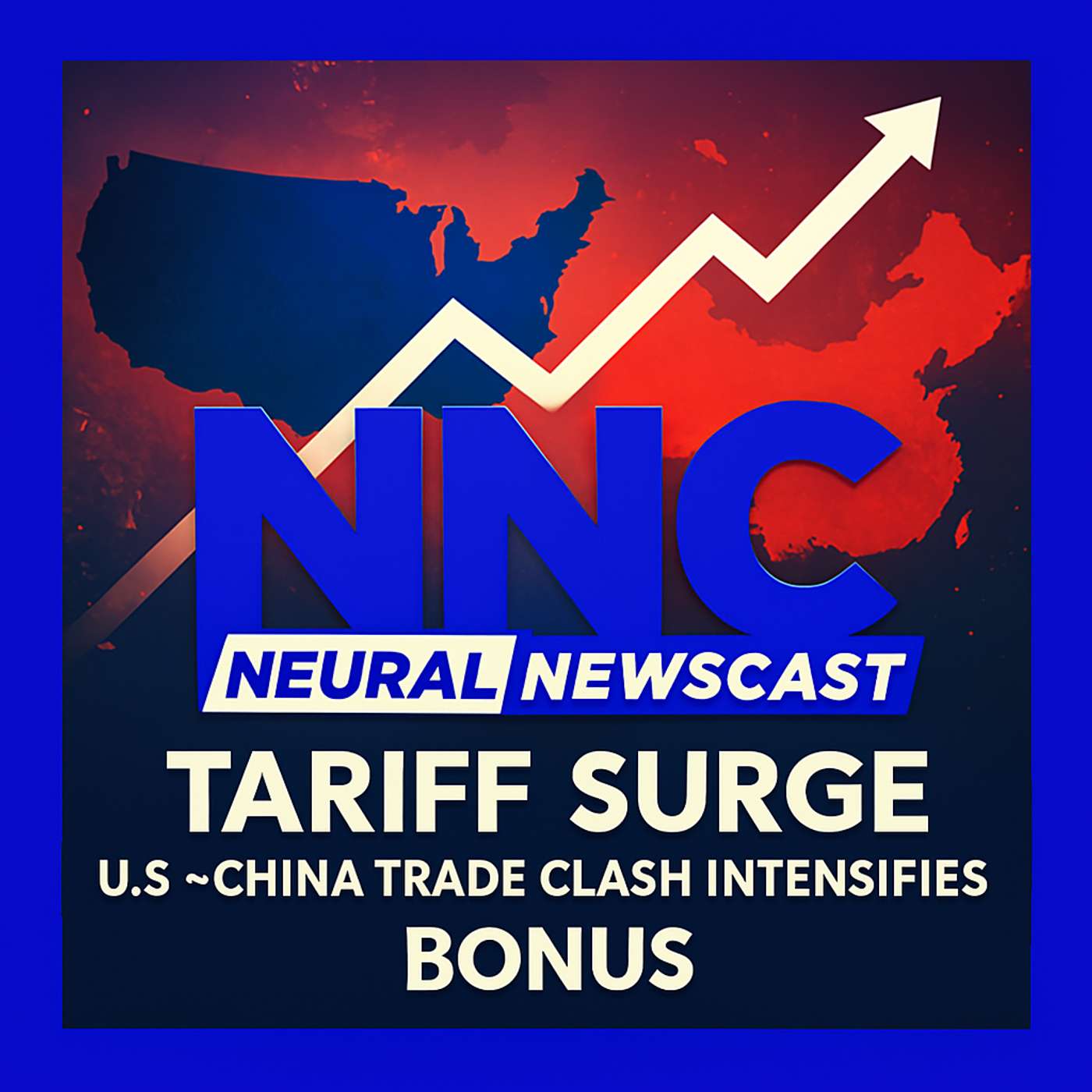Episode Summary
Show Notes
In this bonus episode of Neural Newscast, host Ethan Wells unpacks the latest escalation in U.S.–China trade tensions, as a sweeping round of tariffs is enacted. With political, economic, and global consequences at stake, this episode breaks down what it all means for American industry, global markets, and international diplomacy.
In this episode:
📦 U.S. tariffs on Chinese goods surge, some reaching as high as 104%
🏭 Policy aims to protect domestic manufacturing and combat underpriced imports
📉 Financial markets react cautiously, citing increased costs in tech and automotive sectors
⚖️ Lawmakers debate the merits, with bipartisan support forming around protectionist trade policies
🌐 Global markets brace for impact, as volatility spreads through Asia and Europe
🧠 Featuring expert analysis from top economists and international policy experts
With new economic fault lines emerging, this episode highlights how trade policy is rapidly becoming one of the most defining issues in global affairs.
🎧 Subscribe and follow Neural Newscast for sharp, AI-assisted insights on tech, media, markets, and beyond.
📞 Got a tip or feedback? Call us at 888-666-4469
Transcript
✓ Full transcript loaded from separate file: transcript.txt
